Episodes
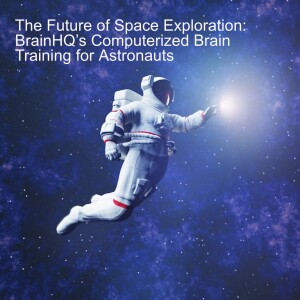
Friday Aug 11, 2023
Friday Aug 11, 2023
This week Fish Fry is headed to space! My guest Mouna Attarha (Posit Science) and I explore a new study conducted by NASA that examined the benefits of computerized brain training for astronauts during long-distance space travel. We also chat about the adverse effects that space travel has on the brain and the exercises included in Posit Science’s BrainHQ app. Also this week, I investigate new research that may give astronauts a new way to easily quench their thirst on the moon.
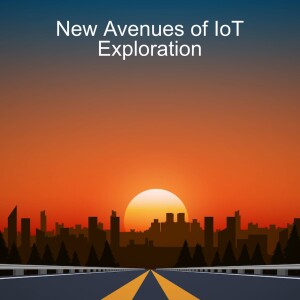
Friday Jul 07, 2023
Friday Jul 07, 2023
IoT takes center stage in this week’s Fish Fry podcast! Peter Hartwell (TDK) and I chat all about TDK’s new ultrasonic vision platform called SmartSonic, the details of their MEMS-based robotics platform called SmartRobotics, the challenges that their SmartMotion UHP sensor family is looking to solve, and what their scalable digital microphones called SmartSound are all about! Also this week, I check out a new inexpensive, biodegradable 3D printed sensor that changes color when it is heated or stretched.
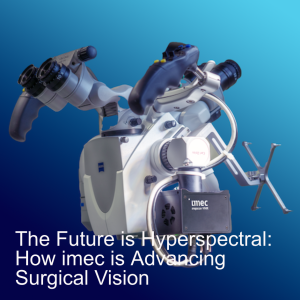
Friday Apr 28, 2023
The Future is Hyperspectral: How imec is Advancing Surgical Vision
Friday Apr 28, 2023
Friday Apr 28, 2023
I have a special medical edition of Fish Fry this week! Wouter Charle (imec) and I investigate the newest advancements in microsurgery and hyperspectral imaging. We examine the trends in microsurgery today and the details of imec’s new hyperspectral camera, what challenges lie ahead for this kind of technology, and how imec is paving the way for even more advancements in this field. Also this week, I examine a new 3D bioengineered skin grafts developed by a team of bioengineers at Columbia university that could be a game changer for the treatment of severe burns.
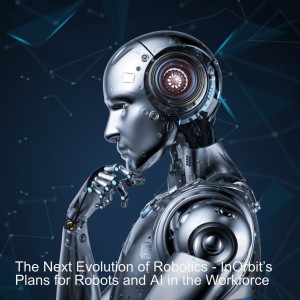
Friday Feb 04, 2022
Friday Feb 04, 2022
Robots big and small take center stage in this week's Fish Fry podcast! Florian Pestoni (CEO - InOrbit) joins me to discuss the future of AI and robotics in the workforce. Florian and I also chat about the details of InOrbit’s cloud-based robot management platform and why Florian believes that the next step in digital transformation will be software-defined X. Also this week, I investigate new micro-bots developed by a team of researchers from Japan's Okayama University and Linköping University in Sweden that can self-heal bone and may make the treatment of compound bone fractures much easier in the future.

Friday Jan 21, 2022
Changing the UI and UX Paradigm One Touch at a Time
Friday Jan 21, 2022
Friday Jan 21, 2022
In this week’s podcast, super tiny technology is taking center stage! First up, I check out world’s first and smallest sensor that can enable touch gestures through any material. Dan Goehl (Co-founder and Chief Business Officer at UltraSense Systems) joins me to discuss how UltraSense’s new 3D ultrasound sensor is going to usher in a whole new era in user interfaces. Also this week, I investigate the world’s smallest antenna developed by a group of researchers at the Université de Montréal and how this new nanoantenna will help scientists better understand nanotechnologies and identify new drugs.
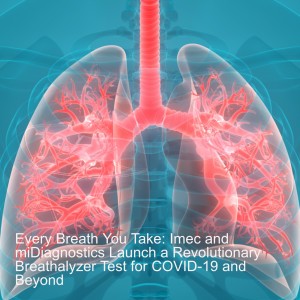
Friday Nov 05, 2021
Friday Nov 05, 2021
In this episode of Fish Fry, Peter Peumans (Imec) joins me to discuss an exciting breakthrough in COVID-19 testing spearheaded by miDiagnostics and Imec. We take a closer look at what sets this new kind of testing method apart from other testing methods on the market today, the details of Imec’s silicon chip technology that lies at the heart of this new technology, and how this kind of testing method could revolutionize how we test for other diseases in the future. Also this week, we check out a new 3D printing method developed by a team of researchers from the University of Notre Dame and Purdue University that integrates functional and structural materials into a single streamlined printing platform.

Friday Sep 10, 2021
Friday Sep 10, 2021

Thursday Jun 24, 2021
How LoRa Can Help Us Build a Smarter and Safer Planet
Thursday Jun 24, 2021
Thursday Jun 24, 2021
In today’s Fish Fry podcast, we are making the planet a smarter and safer place with little help from LoRa! Marc Pegulu (Semtech) joins me to discuss the role LoRa is playing in global connectivity and how LoRa devices and applications can be used to reduce environmental impact across the world. Also this week, I take a closer look at new free, open-source software developed by the Stanford Natural Capital Project called Urban InVEST that has helped cities across the world better visualize the links between nature and human well-being.
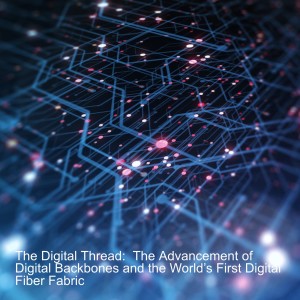
Friday Jun 11, 2021
Friday Jun 11, 2021
Ready, Aim, Digitize! In this week’s podcast, we start things off by taking a closer look at the world’s first digital fiber fabric developed at MIT. We investigate how this new digital fiber is able to collect and store data and the role AI plays in how it is able to process that data. Also this week, Duc Huy Tran (Aitech) joins us to discuss the enablement of digital backbones for military applications, the evolution of COTs in the military and aerospace designs, and why standardization is crucial in this arena.
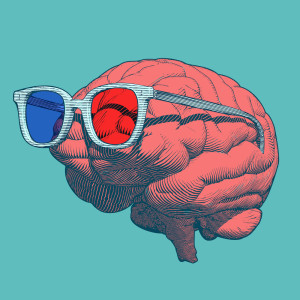
Friday Jan 08, 2021
Friday Jan 08, 2021

